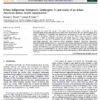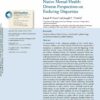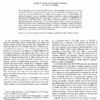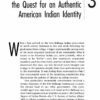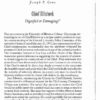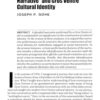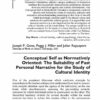Indigenous Identity
PDF copies of the articles, chapters, and reports listed below may be downloaded by clicking on my linked name within the citation (* indicates student/trainee co-authors).
*Wendt, D. C., & Gone, J. P. (2012). Urban-indigenous therapeutic landscapes: A case study of an urban American Indian health organization. Health & Place, 18(5), 1025-1033.
Gone, J. P., & Trimble, J. E. (2012). American Indian and Alaska Native mental health: Diverse perspectives on enduring disparities. Annual Review of Clinical Psychology, 8, 131-160.
Gone, J. P., & *Alcantara, C. (2010). The Ethnographically Contextualized Case Study Method: Exploring ambitious achievement in an American Indian community. Cultural Diversity & Ethnic Minority Psychology, 16(2), 159-168.
Gone, J. P. (2006). Mental health, wellness, and the quest for an authentic American Indian identity. In T. Witko (Ed.), Mental health care for urban Indians: Clinical insights from Native practitioners (pp. 55-80). Washington, DC: American Psychological Association.
Gone, J. P. (2002). Chief Illiniwek: Dignified or damaging? In T. Straus (Ed.), Native Chicago (2nd ed., pp. 274-286). Chicago, IL: Albatross.
Gone, J.P. (1999). “We were through as Keepers of it”: The “Missing Pipe Narrative” and Gros Ventre cultural identity. Ethos, 27(4), 415-440. [Abstracted as “Discussions” box in undergraduate textbook by M. Womack (2001), Being human: An introduction to cultural anthropology (2nd ed.), Prentice-Hall, pp. 246-248]
Gone, J. P., Miller, P. J., & Rappaport, J. (1999). Conceptual self as normatively oriented: The suitability of past personal narrative for the study of cultural identity. Culture & Psychology, 5(4), 371-398.
